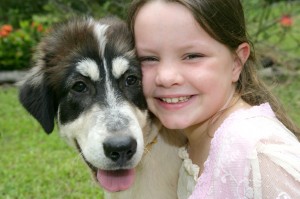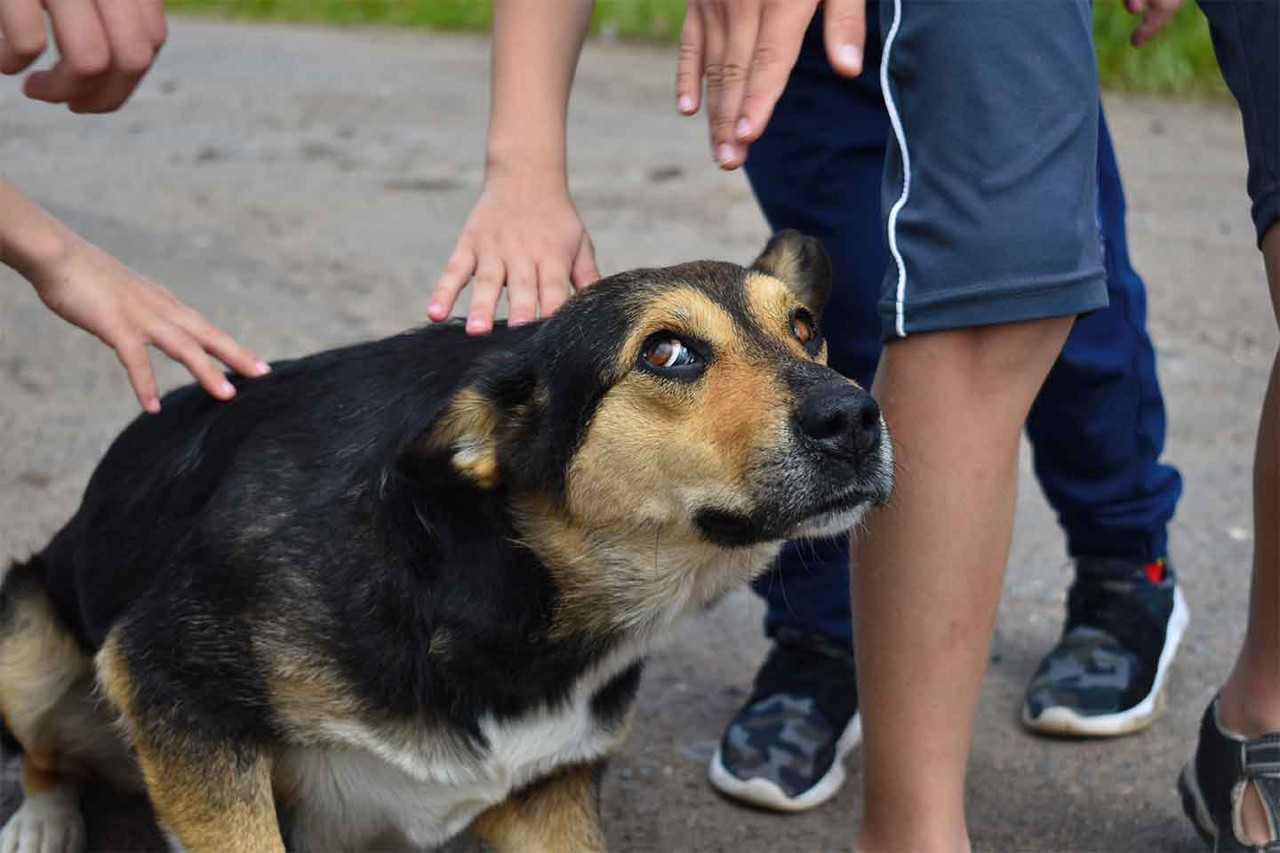
Children and dogs often do really well together. I always had a dog growing up, and our family golden retriever was very tolerant of us kids playing rough with her, chasing her, taking her toys and so on. She didn’t seem to mind one bit and likely enjoyed this kind of attention from us.
For other dogs, though, children can be stressful, annoying or even scary, especially if the dog is not used to them.
The following are some tips to consider if your dog is uncomfortable around kids.
Tips for Dogs Afraid of Children
First, consult with a professional trainer.
Even if you know a lot about dog training and behavior, it’s still a good idea to get a second opinion.
If you think there is any possibility that your dog could bite, it’s best to get a professional dog trainer to help diagnose the issue, said Oscar Mora, lead trainer at No Limit Dog Training in Los Angeles. A professional will be able to help you put together a plan to solve the problem.
Saying things like, “He just growls” or “He hasn’t actually bitten anyone” is just excusing bad behavior and ignoring the problem, Mora said.
Understand why the dog might be afraid.
I asked Mora why some dogs are afraid of kids, and he said it’s because dogs are sometimes fearful of what they don’t know.
Dogs that haven’t been exposed to children may express fear around them, he said. The same may be true if the dog has had a bad experience with a child in the past.
Pinpoint what is stressful to your dog and make a list of “triggers.”
When you are trying to help your dog overcome any sort of fear, it helps to make a list of what seems to “trigger” those fears.
For example, maybe your dog is OK around calm, quiet children who pass her during walks. But perhaps she barks and lunges at children who are running or squealing. Maybe she is OK with children who are five feet away, but begins to tense up when a child reaches out to pet her.
Being aware of these triggers and getting everyone in your family on board will help once you work with a trainer to plan how to desensitize your dog to these triggers.
Teach the children in your life to be respectful of your dog.
One important step to helping your dog feel relaxed around kids is to help the kids in your life understand your dog.
“Many of the dog/child problems that occur happen because the child didn't pay attention to the dog's boundaries or the signals the dog was giving,” Mora said. “Teach children how to appropriately approach and touch a dog and help them understand when a dog would like to be left alone.”
For example, a dog retreating to another room or to his crate or bed shouldn’t be bothered, Mora said. Dogs should also be left alone when they are eating or sleeping.
Always supervise children around dogs
Of course, some children are too young to recognize a dog’s signals, which is why they should never be left unsupervised around a dog, according to Mora.
I would like to add that just being present is not enough. Adults need to pay attention to the child’s actions and to the dog’s signals and be ready to intervene long before the dog is feeling too stressed.
Some signs that could suggest your dog is feeling stressed include lots of lip smacking or tongue flicking, lots of yawning, heavy panting when it’s not hot or simply moving away or looking away from the child. Some dogs will also lift one paw up and lean away from the child if they are unsure. They may also tense up or growl. If you see any of these behaviors from your dog, it’s best to gently and calmly move her away from the situation.
Do any of you have dogs that are uncomfortable around kids? What have you done to help your dog?

